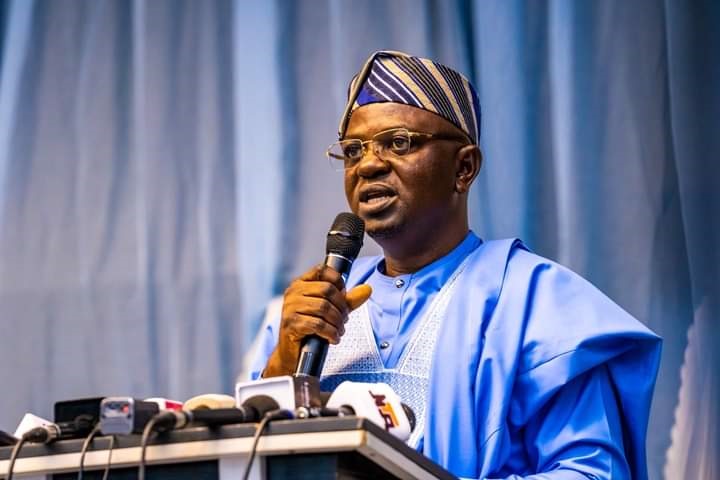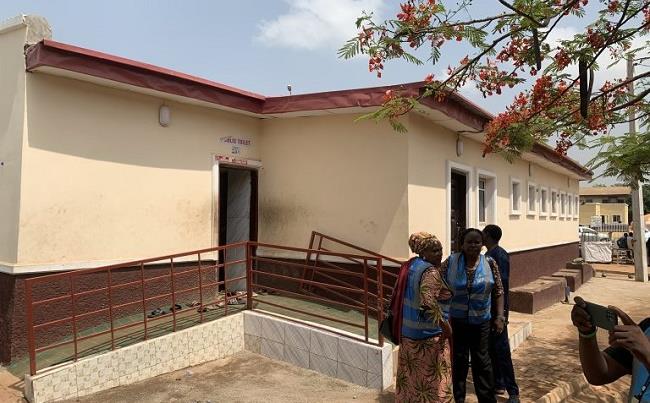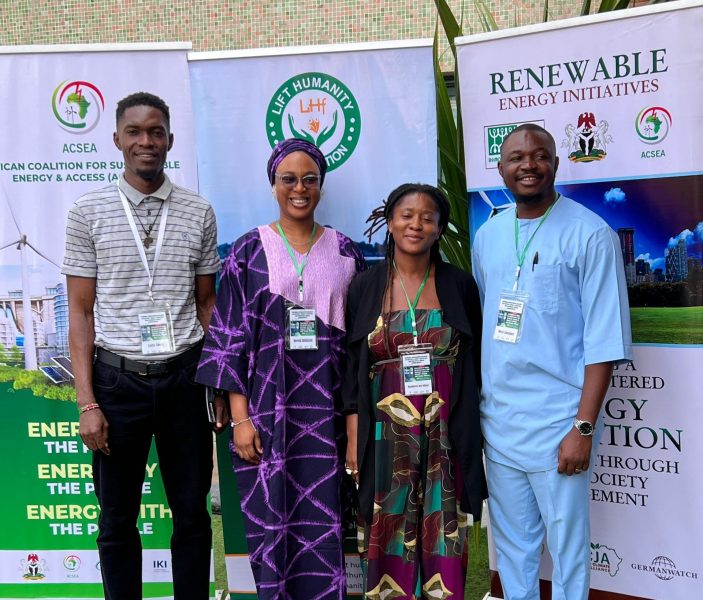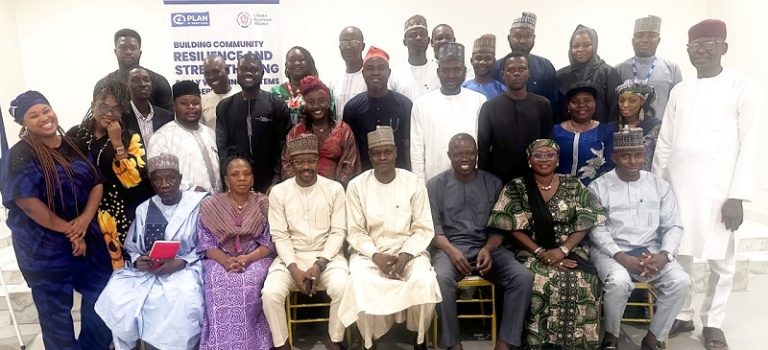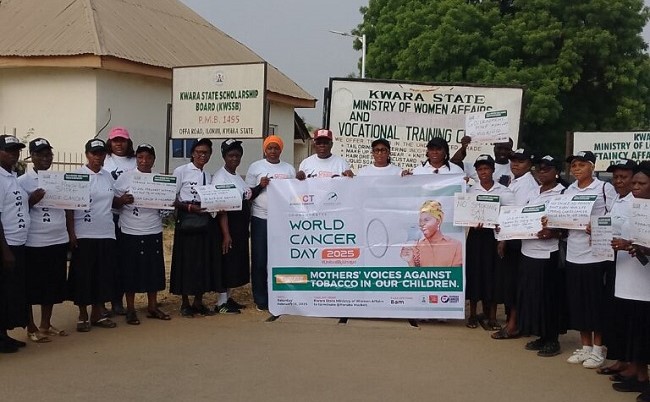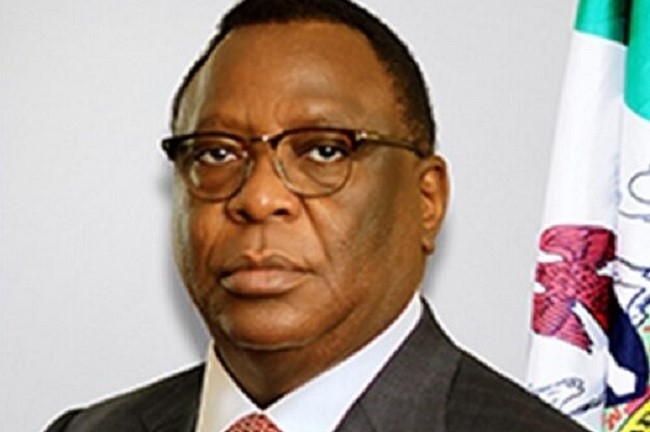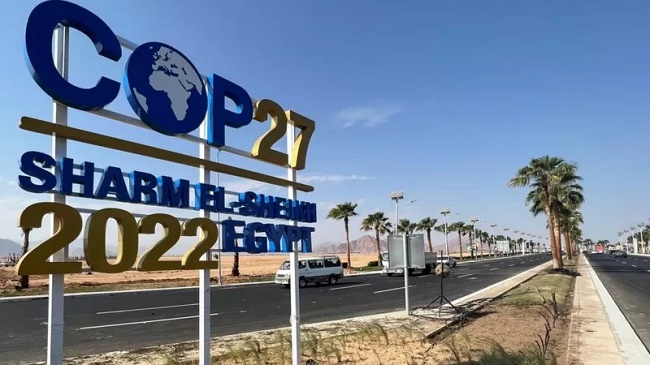The Nigerian Content Development and Monitoring Board (NCDMB) and Starzs Gas Limited were upbeat about growth prospects of Nigeria’s gas subsector and the potential boost to industrialisation as the groundbreaking ceremony for a Compressed Natural Gas (CNG) Mother Station got underway in Iwhreken, Ughelli South, Delta State, on Thursday, February 13, 2025.
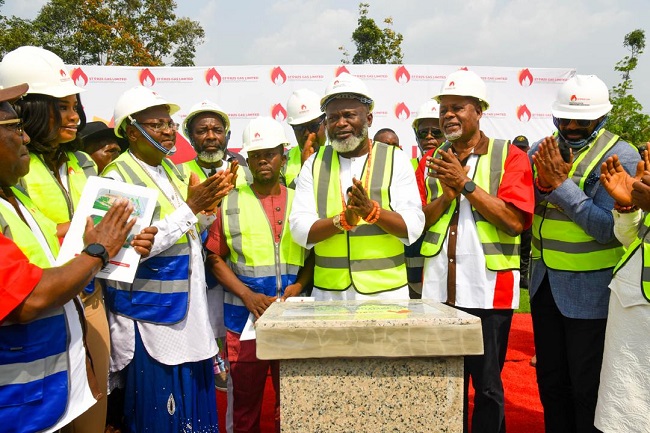
Speaking at the event, the Executive Secretary of the NCDMB, Felix Omatsola Ogbe, represented by the General Manager, Corporate Communications and Zonal Coordination, Esueme Dan Kikile, commended Starzs Investments Company Limited, parent company of Starzs Gas, for pushing industry boundaries with its expansion into the gas subsector.
Ogbe described Starzs Gas Limited, whose offerings cut across natural gas compression, CNG fueling and refueling stations, conversion workshops and training centres, motorised CNG tube skids for sale and distribution, as well as engineering, construction and procurement solutions, as a veritable vehicle “to drive industrialisation and expand Nigeria’s economy.”
He was particularly elated that the multi-million-dollar Integrated CNG Project, which is slated for commissioning in the first quarter of 2026, has come at a time that the Federal Government’s Decade of Gas programme is going full steam, with the NCDMB itself acting as an enabler to numerous gas development and utilisation projects across the country.
On the Board’s performance in implementation of its core mandate, the Executive Secretary disclosed that local content hit 56 per cent in the last quarter of 2023, up from five per cent in 2010, when the Nigerian Oil and Gas Industry Content Development (NOGICD) Act came into force, noting that more and more Nigerian assets and resources are being utilised in oil and gas operations in the country.
Ogbe urged the host community, Iwhrekan, to cooperate with Starzs Gas Limited so as to enjoy maximum benefits and also facilitate unhampered production activities at the company. He said he was encouraged by the enthusiasm of the House of Representatives member for Ughelli North, Ughelli South, Udu Federal Constituency, Francis Waive, who was present at the ceremony, which could facilitate NCDMB’s sustainability programme for protection and security of the company’s facilities.
The Chairman and Chief Executive Officer of Starzs Investments Company Limited, Mr. Greg Ogbeifun, said the establishment of Starzs Gas Limited signalled “a generational shift,” as the Starzs Group, a conglomerate with such leading companies as Starzs Marine and Engineering Services Limited, Starzs Shipyard Limited, and Starzs Investments Company Limited, had for decades focused largely on the maritime industry.
He said Starzs Gas Limited was the culmination of unrelenting pressure by his daughter, Miss Iroghama Ogbeifun, that the global clamour for elimination of gas flaring and reduced carbon footprint, which form the basis of President Bola Tinubu’s initiatives on gas utilisation, be considered as a challenge to entrepreneurship.
According to him, he yielded and provided the necessary material support for the new company, whose focus is on gas for industrial applications, gas-to-power, and gas as auto fuel. The company is also engaged in engineering, procurement and construction (EPC) projects within the gas subsector.
The Starzs Group Chairman announced the immediate promotion of Miss Iroghama Ogbeifun to the position of Vice Chairman of the conglomerate in appreciation of her exceptional capabilities in visioning and implementing the blueprint for the new business organisation and her energy and drive.
Earlier in a welcome address, Miss Ogbeifun, Managing Director of Starzs Gas, expressed profound gratitude to guests among whom were top executives of the Nigerian National Petroleum Company Limited (NNPCL) and its subsidiaries, Chief Executive Officer, ND Western, Olanrewaju Kalejaiye, represented by the company’s Commercial Manager, Sunday Okunbor, Feb Idahosa, Waive, of the House of Representatives, the Council of Chiefs of the community, and President of the Nigerian Gas Association, Aka Nwokedi.
She said the event of Thursday was “not just groundbreaking…but setting the stage for cleaner energy and development for the host community,” pointing out that the NNPCL Gas Marketing Limited (NGML) has 15 per cent equity in the project, and that her company would leverage the partnership and expertise of the NNPCL.
“We are embarking on a journey that will drive industrial development,” Miss Ogbeifun assured the audience, adding that the Integrated Gas Project would significantly facilitate attainment of objectives in Federal Government’s Decade of Gas programme.
In a goodwill message, Francis Waive said Thursday (day of the groundbreaking ceremony) was a very important day for him, adding, “This is my place, my community, my constituency.” He told the community, “Let us work with Starzs to achieve success,” noting that development was coming to them if the people would refrain from disruptive activities.
The Chief Executive Officer of ND Western, Kalejaiye, expressed happiness at the initiative of the Starzs Group, pointing out that “Gas is not just fuel but an enabler of economic prosperity.” He described the project as most valuable as it broadens the country’s energy mix, while calling for collaboration between policymakers, producers and other key stakeholders.
The President, Nigerian Gas Association, Nwokedi, said the project being undertaken would reduce carbon footprint and bring about other economic benefits. He commended the partnership between the NNPCL Gas Marketing Limited and Starzs Gas as well as the focus and tenacity of the Minister of State for Petroleum Resources (Gas), Ekperikpe Ekpo, for developments in the subsector.
In a related goodwill message, the Managing Director of NNPC Gas Marketing Limited, Justin Ezeala, described the Integrated Gas Project as a timely response to the Federal Government’s charge to the private sector to invest in gas infrastructure to promote resource development and utilisation.
Ezeala, who spoke as representative of the Minister of State for Petroleum (Gas), Ekpo, and Group Chief Executive Officer of NNPCL, Mallam Mele Kolo Kyari, said the Federal Government “believes in the vision of Starzs” and that “It is reassuring that the National Assembly is making the right laws and Government is making the right policies.”
Starzs Gas Limited is building a CNG Compression Station adjacent to the gigantic NAZ 3 Gas Plant at Utorogu, Delta State. The Compression Station, by design, has an initial capacity of two million standard cubic feet per day (mmscfd), which is scalable to five mmscfd within 18 months. It is envisaged to expand from CNG to domestic LNG production.

